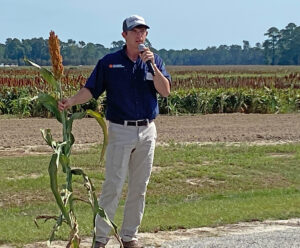Since the days of George Washington, the United States has been surveying farmers about their farm operations to monitor the health of the nation’s agricultural industry and the security of the food supply.
 The effort started in 1791, when Washington wrote to farmers requesting information on land values, crop acreages, crop yields, livestock values and taxes. Washington’s survey extended 250 miles north and south, and 100 miles east and west of his home in Mount Vernon, which today would encompass Maryland, Pennsylvania, Virginia, West Virginia, and the District of Columbia.
The effort started in 1791, when Washington wrote to farmers requesting information on land values, crop acreages, crop yields, livestock values and taxes. Washington’s survey extended 250 miles north and south, and 100 miles east and west of his home in Mount Vernon, which today would encompass Maryland, Pennsylvania, Virginia, West Virginia, and the District of Columbia.
In 1839, the census became official when congress appropriated $1,000 for, “carrying out agricultural investigations and procuring agricultural statistics.”
Now the USDA’s Census of Agriculture spans the entire nation and is released every five years.
Today on Earthly, Jonathan talks to agricultural economist Nathan Smith about the 2022 census, which was released in February.
Smith is going to help us understand what the census says about the health of the nation’s agricultural industry and how South Carolina is faring.
Census of Agriculture
Clemson Extension Agribusiness Team
New and Beginning Farmers Program



 and the University of Maryland found that 48% of honeybee colonies were lost last year. Today on Earthly I talk to two experts in the protection and cultivation of honeybees. Brad Cavin leads a program that regulates the beekeeping industry in South Carolina, and Ben Powell runs Clemson Extension’s beekeeping and pollinator program. They’re going to explain the importance of honeybees, why they might be struggling, and steps we can take to help protect them.
and the University of Maryland found that 48% of honeybee colonies were lost last year. Today on Earthly I talk to two experts in the protection and cultivation of honeybees. Brad Cavin leads a program that regulates the beekeeping industry in South Carolina, and Ben Powell runs Clemson Extension’s beekeeping and pollinator program. They’re going to explain the importance of honeybees, why they might be struggling, and steps we can take to help protect them.